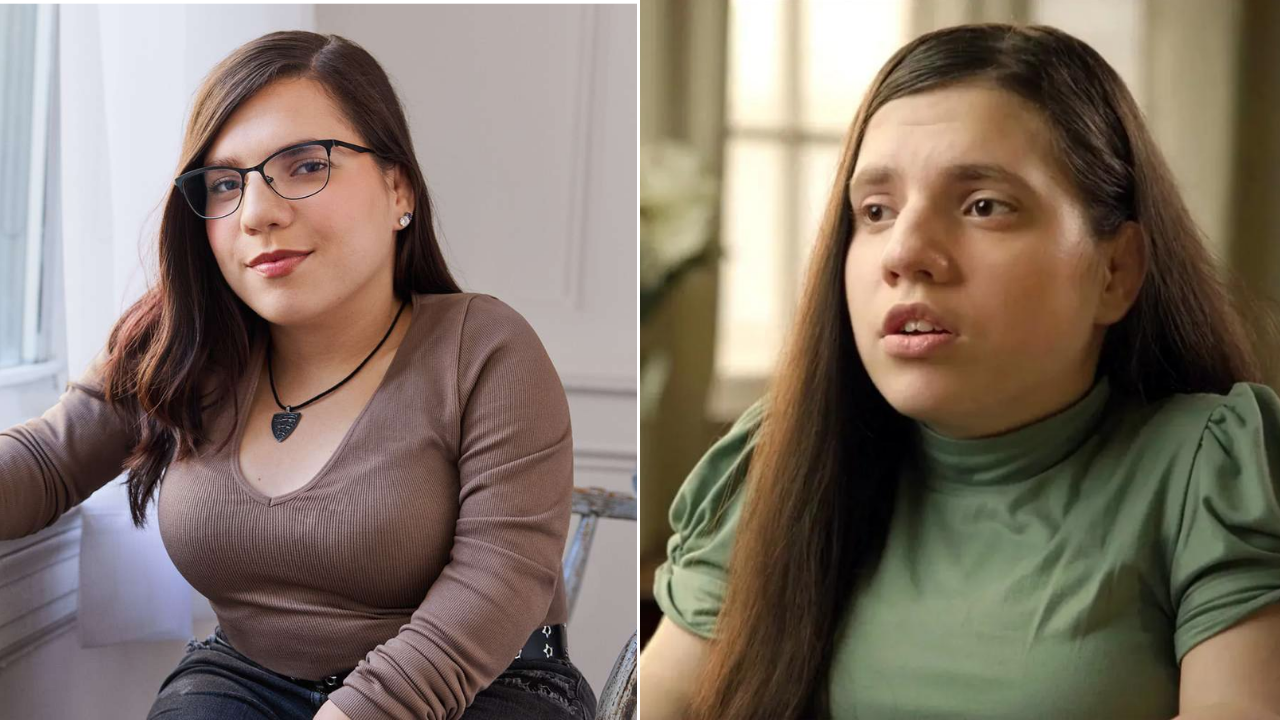Natalia Grace on Conflict With Third Foster Family in ‘The Final Chapter’: ‘They Said I Was Mentally Ill, But They Didn’t Know I Had to…’
The saga of Natalia Grace, the Ukrainian-born adoptee at the center of a whirlwind of controversy, has taken yet another dramatic turn in the documentary series The Final Chapter. In the latest installment, Natalia opens up about her tumultuous relationship with her third foster family, shedding light on accusations, misunderstandings, and her ongoing quest for acceptance.
A History of Turmoil
Natalia Grace’s story first captured public attention when her second adoptive parents, Michael and Kristine Barnett, alleged that she was not a child as she claimed but an adult posing as one. They accused her of having sociopathic tendencies and even claimed she threatened their lives. These allegations led to a highly publicized court case and left Natalia in a state of limbo, bouncing between foster homes.
Her third foster family, whose identity has been kept confidential in the documentary, took Natalia in under the belief that they could provide her with the stability and care she needed. However, this relationship quickly soured, with Natalia revealing that they labeled her as “mentally ill” and incapable of integrating into their family dynamic.
Natalia’s Perspective
“They said I was mentally ill, but they didn’t know I had to deal with years of trauma and rejection,” Natalia explained in an emotional interview featured in the documentary. According to her, the foster family’s lack of understanding about her past contributed to their strained relationship.
“I’ve been through so much,” she continued. “I just wanted a family that would love me for who I am, not for who they thought I should be.”
Natalia also detailed how the foster family’s attempts to “fix” her only exacerbated her feelings of alienation. She claimed that instead of addressing her emotional scars, they focused on labeling her behavior as symptomatic of mental illness.
The Family’s Allegations
While Natalia’s account paints a picture of misunderstanding and emotional neglect, the foster family’s perspective tells a different story. In interviews conducted for the documentary, they alleged that Natalia exhibited erratic behavior that made it impossible for them to provide a stable environment.
“We tried everything,” one family member stated. “Therapy, counseling, even alternative education programs. But Natalia’s behavior was unpredictable and, frankly, dangerous at times.”
The family also cited incidents where Natalia allegedly acted out violently, which they claim reinforced their belief that she required professional care beyond what they could provide.
A Deeper Look at Trauma
Experts featured in The Final Chapter weighed in on the situation, emphasizing the importance of understanding Natalia’s experiences through the lens of trauma. Dr. Emily Richards, a psychologist specializing in adoption and attachment disorders, explained that children who endure multiple rejections and disruptions in care often develop coping mechanisms that can be misinterpreted as mental illness.
“Trauma manifests in complex ways,” Dr. Richards noted. “What some may see as erratic or defiant behavior is often a survival strategy for someone who has experienced chronic instability.”
Natalia’s Current Status
As of the documentary’s release, Natalia is living independently and working toward building a life free from the shadows of her past. She’s also using her platform to advocate for better understanding and support for adoptees who face similar challenges.
“I’m not perfect,” Natalia admitted. “But who is? I’m just trying to heal and move forward. I want people to see me as a person, not as a headline.”
Public Reaction
The revelations in The Final Chapter have sparked widespread debate on social media. While some viewers express sympathy for Natalia and criticize the foster system’s handling of her case, others remain skeptical of her claims, pointing to the conflicting narratives presented by her foster families.
One Twitter user wrote, “Natalia Grace’s story is heartbreaking. No child should go through what she has. We need to do better for kids in the system.” Another commented, “There are too many unanswered questions. I don’t know who to believe.”
Moving Forward
Natalia Grace’s journey is far from over. With The Final Chapter, she hopes to rewrite her narrative and inspire others to look beyond the surface of sensationalized stories.
“I’m not just a case file,” she said in a closing statement. “I’m a person who deserves love and understanding, just like anyone else.”
As the documentary continues to unfold, it remains to be seen whether Natalia’s story will lead to greater awareness and reform in the foster care and adoption systems or if it will leave audiences with more questions than answers.
